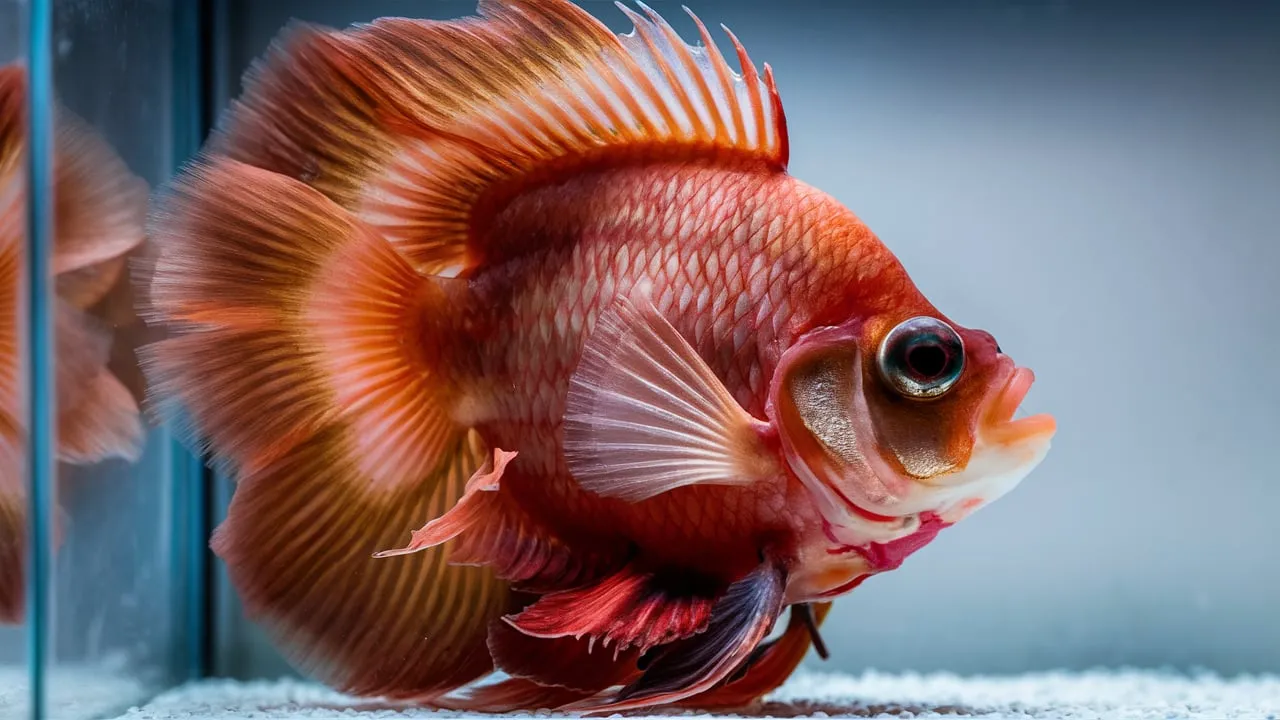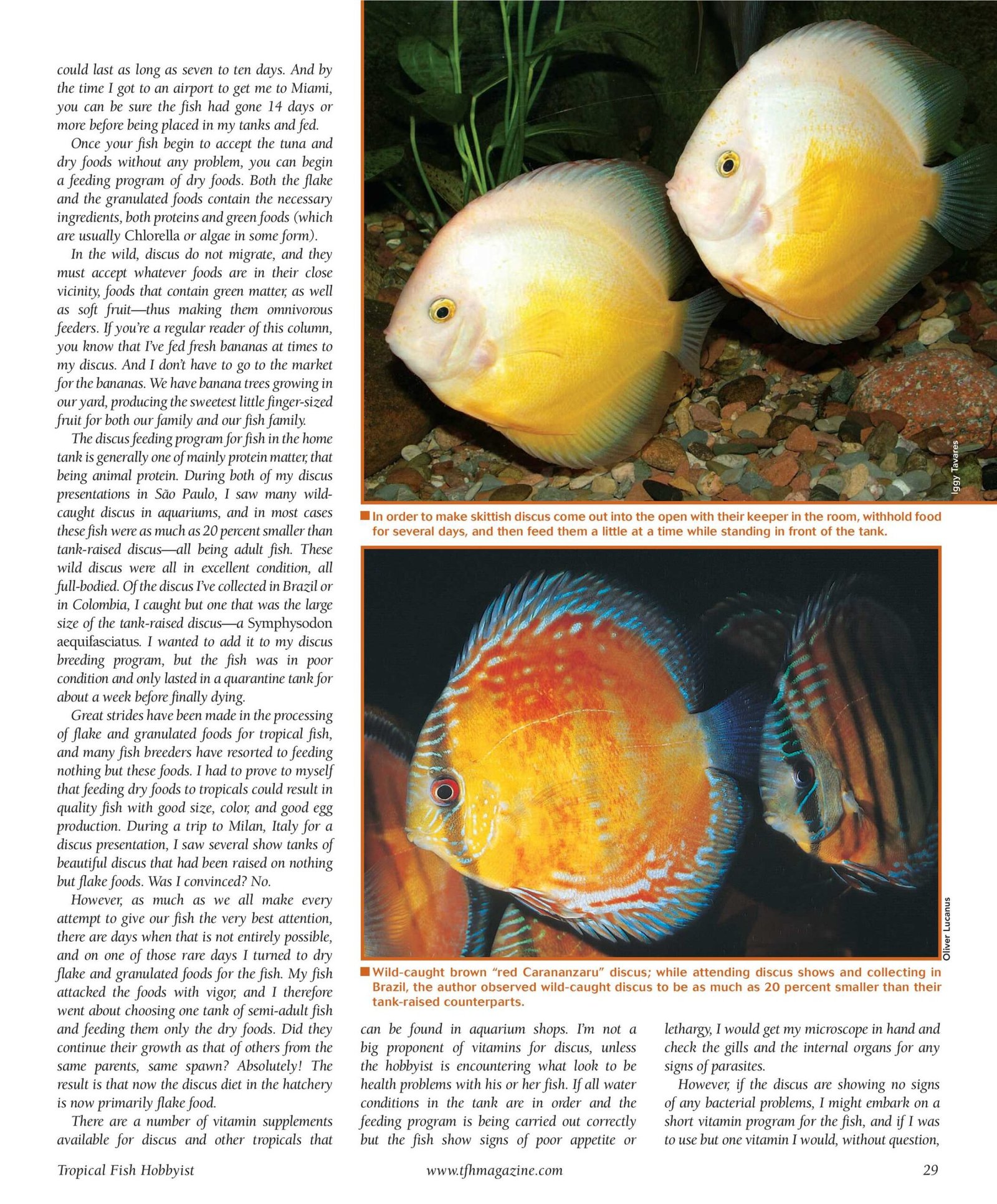Health problems can arise from various factors, including genetics, lifestyle choices, and environmental influences. Addressing these issues promptly is crucial for overall well-being.
Health problems affect individuals in diverse ways, impacting their quality of life and daily functioning. Common issues include heart disease, diabetes, respiratory conditions, and mental health disorders. Lifestyle choices, such as poor diet, lack of exercise, and smoking, often contribute to these ailments.
Environmental factors, like pollution and exposure to toxins, also play a significant role. Early detection and preventive measures can mitigate many health problems. Regular check-ups, a balanced diet, exercise, and stress management are essential for maintaining good health. Staying informed and proactive helps individuals manage and prevent potential health issues effectively.
Identifying Common Fish Diseases
Discus fish are beautiful but delicate creatures. Proper care is essential to keep them healthy. Understanding common fish diseases can help you detect and treat issues early. Let’s explore the signs and symptoms of common diseases and the importance of early detection.
Signs And Symptoms
Recognizing the signs and symptoms of fish diseases is crucial. Here are some common indicators that your discus may be unwell:
- White Spots: These may indicate Ich, a parasitic infection.
- Clamped Fins: This could signal stress or poor water quality.
- Red Gills: Red or inflamed gills may suggest gill flukes or ammonia poisoning.
- Loss of Appetite: A sick fish often stops eating.
- Labored Breathing: Difficulty breathing can indicate a respiratory issue.
- Faded Colors: Dull colors are a sign of stress or illness.
- Erratic Swimming: Unusual swimming patterns may point to a neurological problem.
Early Detection
Early detection is key to managing fish diseases effectively. Here are some steps to ensure you catch problems early:
- Regular Observation: Spend time watching your discus daily.
- Water Testing: Check water parameters weekly.
- Quarantine New Fish: Isolate new fish for at least two weeks.
- Healthy Diet: Provide a balanced diet to boost immunity.
- Clean Environment: Maintain a clean tank to prevent diseases.
By staying vigilant and proactive, you can ensure your discus fish remain healthy and vibrant.
Preventative Measures
Discus fish are beautiful but require care. Preventative measures can keep them healthy. Follow these tips to ensure their well-being.
Proper Tank Maintenance
Proper tank maintenance is crucial for Discus health. Clean the tank weekly to remove waste and uneaten food. A clean tank reduces disease risks.
Use a gravel vacuum to clean the substrate. This tool helps remove debris from the tank floor. Replace 25-30% of the water weekly. Fresh water keeps the tank environment stable.
Check water parameters regularly. Discus need specific conditions to thrive. Maintain a temperature of 82-86°F (28-30°C). Keep the pH between 6.0 and 7.0. Consistent water quality helps prevent stress and disease.
Quarantine New Fish
Quarantine new fish before adding them to the main tank. This step prevents the spread of diseases. A separate quarantine tank helps monitor new arrivals.
Keep new fish in quarantine for at least 2-4 weeks. Observe them closely for signs of illness. Look for symptoms like lethargy, loss of appetite, or visible parasites.
Use a separate set of tools for the quarantine tank. This practice prevents cross-contamination. Once the quarantine period is over, introduce the new fish slowly to the main tank.
Diet And Nutrition
Proper diet and nutrition are crucial for the health of your Discus fish. The right diet helps them grow and stay healthy. A poor diet can lead to health problems.
Balanced Diet
A balanced diet is essential for Discus fish. They need a mix of proteins, fats, and carbohydrates. Proteins should come from sources like bloodworms, brine shrimp, and high-quality pellets. Fats help with energy and should come from fish oils. Carbohydrates are found in vegetables and help with digestion.
| Nutrient | Source |
|---|---|
| Proteins | Bloodworms, Brine Shrimp, Pellets |
| Fats | Fish Oils |
| Carbohydrates | Vegetables |
Nutritional Supplements
Discus fish may need nutritional supplements to stay healthy. These supplements provide extra vitamins and minerals. Common supplements include Vitamin C and E. These vitamins help boost the fish’s immune system.
- Vitamin C: Helps with healing and immune support.
- Vitamin E: Good for reproductive health.
Adding these supplements to their diet helps prevent deficiencies. Always choose high-quality supplements for the best results.

Credit: www.shutterstock.com
Water Quality Management
Maintaining water quality is crucial for the health of Discus fish. Poor water quality can lead to stress and disease. This section covers the essentials of water quality management.
Optimal Ph Levels
Discus fish thrive in water with a specific pH range. The optimal pH level for Discus is between 6.0 and 7.5. Keeping the pH within this range helps ensure the health of your fish.
To maintain the correct pH, use a reliable test kit. Regularly test the water and make necessary adjustments. Avoid sudden changes in pH, as this can stress the fish.
| Condition | pH Level |
|---|---|
| Optimal | 6.0 – 7.5 |
| Stressful | Below 6.0 or Above 7.5 |
Regular Water Testing
Regular water testing is essential for Discus fish health. Test the water weekly for pH, ammonia, nitrites, and nitrates. Consistent testing helps you spot problems early.
Use a high-quality test kit for accurate results. Keep a log of your test results to track changes over time. This will help you understand the water conditions better.
- Test pH weekly.
- Check ammonia levels.
- Monitor nitrites and nitrates.
If you notice any abnormal readings, take corrective actions immediately. This can include water changes or using water conditioners.
- Ammonia: Keep levels at 0 ppm
- Nitrites: Should also be 0 ppm
- Nitrates: Keep below 20 ppm
Maintaining these parameters helps create a safe environment for your Discus fish. This ensures their health and longevity.
Stress Reduction Techniques
Discus fish can get stressed easily. Stress affects their health badly. Learn how to reduce stress in your discus fish.
Minimizing Tank Disturbances
Minimize disturbances in the tank to keep your discus calm.
- Avoid sudden movements near the tank.
- Keep the tank in a quiet room.
- Maintain a consistent feeding schedule.
- Ensure stable water parameters.
Providing Hiding Spots
Discus fish need places to hide. It helps them feel safe.
| Hiding Spot | Description |
|---|---|
| Plants | Use tall plants for cover. |
| Rocks | Arrange rocks to create caves. |
| Driftwood | Place driftwood for natural hiding. |
Adding these items reduces stress in discus fish.
Treatment Options
Discus fish, known for their vibrant colors, can face health problems. Understanding treatment options is crucial. This section explores effective treatments for keeping your Discus healthy.
Medications
Medications can treat many Discus health issues. They are often the first line of defense.
- Antibiotics: These treat bacterial infections. Common choices include Kanamycin and Erythromycin.
- Antifungal Treatments: Use these for fungal infections. Methylene Blue is a popular option.
- Parasitic Treatments: Medications like Praziquantel help with parasites. These are common in Discus fish.
Always follow dosage instructions. Over-medicating can harm your fish.
Natural Remedies
Natural remedies are often safer and gentle on Discus fish. They can be effective for mild problems.
- Garlic: Garlic boosts immunity. It also helps fight parasites.
- Indian Almond Leaves: These leaves have antifungal properties. They also help reduce stress in fish.
- Salt Baths: Epsom salt baths can treat mild infections. They are easy to prepare and use.
Natural remedies can be a good first step. They are less harsh than medications.
| Condition | Medication | Natural Remedy |
|---|---|---|
| Bacterial Infection | Kanamycin, Erythromycin | Indian Almond Leaves |
| Fungal Infection | Methylene Blue | Indian Almond Leaves |
| Parasitic Infection | Praziquantel | Garlic |
Choose the treatment option that best fits your Discus fish’s needs. Always monitor their response to treatment.
Regular Health Check-ups
Discus fish are stunning, but they require proper care. Regular health check-ups are essential. These check-ups help detect issues early and ensure your fish stay healthy.
Routine Inspections
Perform routine inspections weekly. Look for changes in behavior, color, and appetite. These signs can indicate health problems.
- Behavior: Are they hiding more often?
- Color: Is their color fading?
- Appetite: Are they eating less?
Check the water quality too. Use a test kit to monitor pH, ammonia, and nitrate levels.
Professional Consultations
Schedule professional consultations twice a year. A vet can spot issues you might miss. They can also provide treatments if needed.
| Frequency | Purpose |
|---|---|
| Twice a Year | General Health Check |
| As Needed | Treatment of Specific Issues |
These consultations ensure your discus fish remain in peak health. Early detection and treatment are key to preventing serious issues.

Credit: www.researchgate.net
Importance Of Tank Companions
Discus fish thrive best with the right tank companions. These companions help create a balanced environment. They also reduce stress for your discus fish. Ensuring a harmonious tank setup is crucial for discus health. Let’s explore the best companions and those to avoid.
Compatible Species
Discus fish need peaceful and friendly tank mates. Here are some compatible species:
- Tetras: Small, colorful, and peaceful.
- Corydoras Catfish: Bottom dwellers that mind their own business.
- Rams: Gentle and share similar water requirements.
These species share similar water conditions with discus fish. They also do not compete aggressively for food. This makes them ideal companions.
Avoiding Aggressive Fish
Avoid housing discus fish with aggressive species. Aggressive fish can cause stress and injuries. Here are some species to avoid:
- Cichlids: They are often territorial and aggressive.
- Barbs: Known for fin-nipping behavior.
- Large Catfish: They may outcompete discus for food.
Keeping aggressive fish away ensures a peaceful tank. This promotes better health for your discus fish.

Credit: bettafish247.com
Frequently Asked Questions
What Is The Disease In Discus Fish?
Discus fish commonly suffer from diseases like Ich, fin rot, and hole-in-the-head. Proper care and clean water help prevent these.
How To Treat Sick Discus?
Isolate the sick discus. Maintain optimal water quality. Use appropriate medications for specific diseases. Adjust diet for better nutrition. Consult a vet if symptoms persist.
How Do I Know If My Discus Is Healthy?
A healthy discus has vibrant colors, clear eyes, and smooth fins. It eats well and swims actively. No visible signs of disease like white spots or clamped fins.
What Is The Lifespan Of A Discus Fish?
Discus fish typically live for 10 to 15 years. Proper care, clean water, and a balanced diet can extend their lifespan.
Conclusion
Addressing discus health problems is essential for maintaining optimal fish well-being. Regular monitoring can prevent severe issues. Proper care, balanced diet, and clean water significantly enhance discus health. Stay informed and proactive to ensure a thriving aquarium. Prioritize your discus fish’s health for their longevity and vibrant life.
